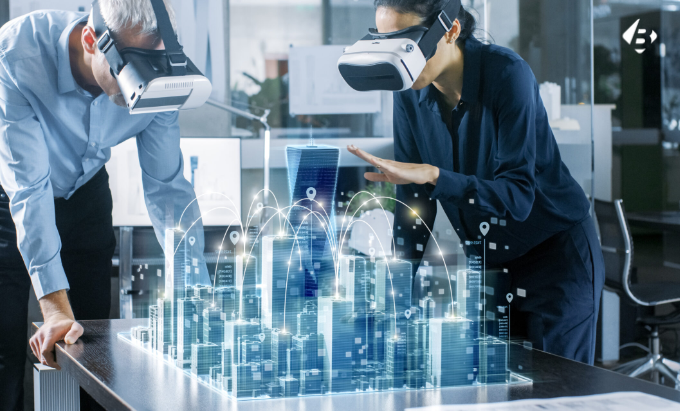
The metaverse, with its immersive virtual worlds, is rapidly moving beyond mere entertainment and gaming, and into the realm of work. Organizations are exploring the potential of this innovative technology to revolutionize the way we train, collaborate, and engage with employees in a world increasingly dominated by remote and hybrid work arrangements.
Why the Metaverse Matters for Work:
Several factors are driving the adoption of the metaverse in the workplace:
- Enhanced Training and Development: The metaverse can provide immersive training experiences that are more engaging and effective than traditional methods. Virtual reality simulations can allow employees to practice skills in a safe and controlled environment, learn complex procedures, and receive immediate feedback.
- Improved Collaboration and Communication: Virtual workspaces in the metaverse can facilitate seamless collaboration and communication between geographically dispersed teams. Real-time avatars and interactive environments can foster a sense of presence and connection, even when physically apart.
- Increased Employee Engagement: The immersive nature of the metaverse can boost employee engagement and satisfaction. Gamification elements, virtual rewards, and personalized experiences can motivate employees and create a more positive work environment.
- Boosting Creativity and Innovation: The virtual world can unlock new opportunities for brainstorming, problem-solving, and creative collaboration. Virtual tools and environments can enable employees to think outside the box and explore innovative ideas in ways that are not possible in traditional physical spaces.
- Attracting and Retaining Top Talent: Organizations that embrace the metaverse can attract and retain top talent who are looking for cutting-edge work environments and innovative experiences. Offering unique metaverse-based benefits and opportunities can give organizations a competitive edge in the talent market.
Early Adopters and Pioneering Applications:
Several organizations are already leading the way in adopting the metaverse for work:
- Accenture: Utilizing virtual reality for training and onboarding new employees, creating a more engaging and immersive experience.
- PwC: Building a virtual reality platform for collaboration and communication, allowing geographically dispersed teams to work together in real-time.
- Bosch: Using augmented reality to assist employees with complex tasks and procedures, improving efficiency and accuracy.
- Siemens: Developing a virtual twin of a factory floor, enabling remote monitoring and maintenance, reducing downtime and improving productivity.
- Meta: Investing heavily in metaverse technologies and platforms, offering organizations tools and solutions to create virtual workspaces and experiences.
Challenges and Opportunities on the Horizon:
While the metaverse offers immense potential for the future of work, several challenges need to be addressed:
- Technological limitations: Current VR and AR technology still has limitations regarding accessibility, affordability, and user experience.
- Data privacy and security concerns: Ensuring data privacy and security within the metaverse is crucial to build trust and prevent misuse.
- Ethical considerations: The potential for bias, discrimination, and harassment in virtual environments needs careful consideration and mitigation strategies.
- Integration with existing workflows and systems: Seamless integration of metaverse-based solutions with existing HR systems and workflows is essential for successful implementation.
- Digital literacy and accessibility: Ensuring equal access to the metaverse and providing adequate digital literacy training for employees is crucial.
Despite these challenges, the metaverse holds tremendous promise for the future of work. By addressing these challenges and leveraging the potential of this technology, organizations can create a more immersive, engaging, and productive work environment for employees, leading to increased success and innovation in the years to come.
Fascinating exploration of the metaverse’s impact on the future of work. The discussion on early adopters like Accenture and PwC showcases the practical applications already in motion.
Insightful examination of the metaverse’s potential benefits for training, collaboration, and talent retention. The acknowledgment of challenges, such as technological limitations and data privacy concerns, adds a balanced perspective.
Well-articulated overview of how the metaverse is reshaping work. The focus on creativity, innovation, and the experiences of leading organizations like Bosch and Siemens provides a clear vision of the transformative possibilities
Compelling read on the opportunities and challenges presented by the metaverse in the workplace. The emphasis on digital literacy and ethical considerations highlights the need for a thoughtful and inclusive approach to adopting this revolutionary technology.